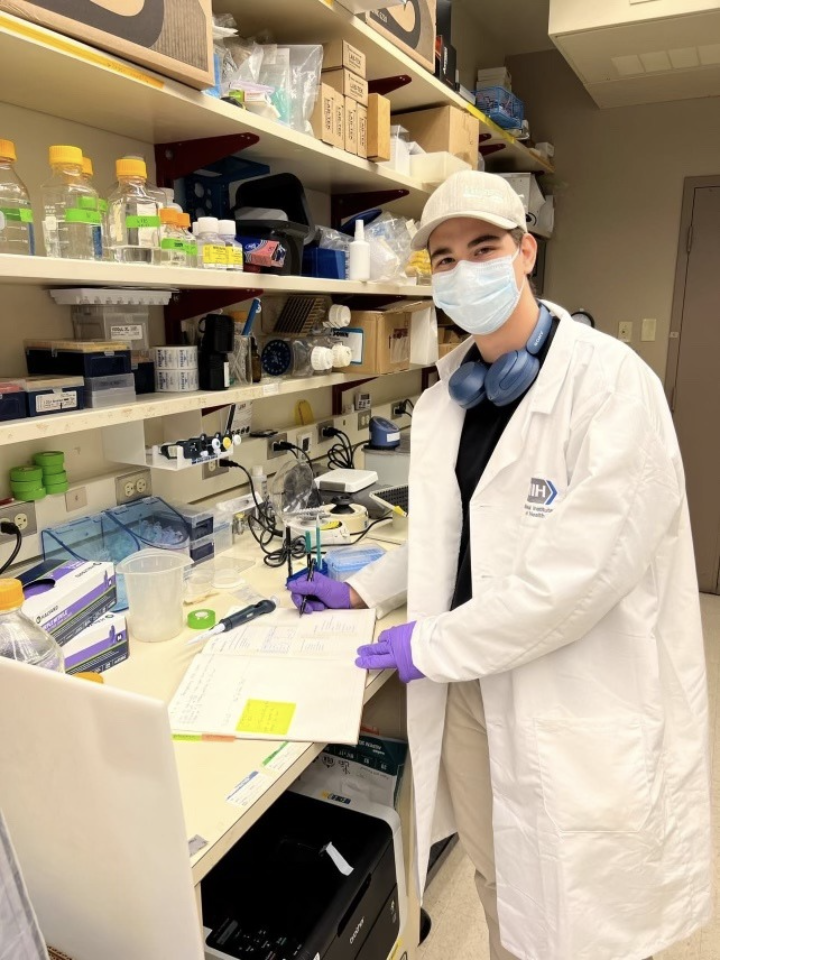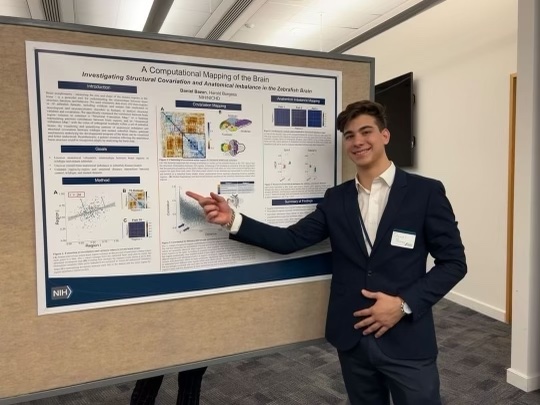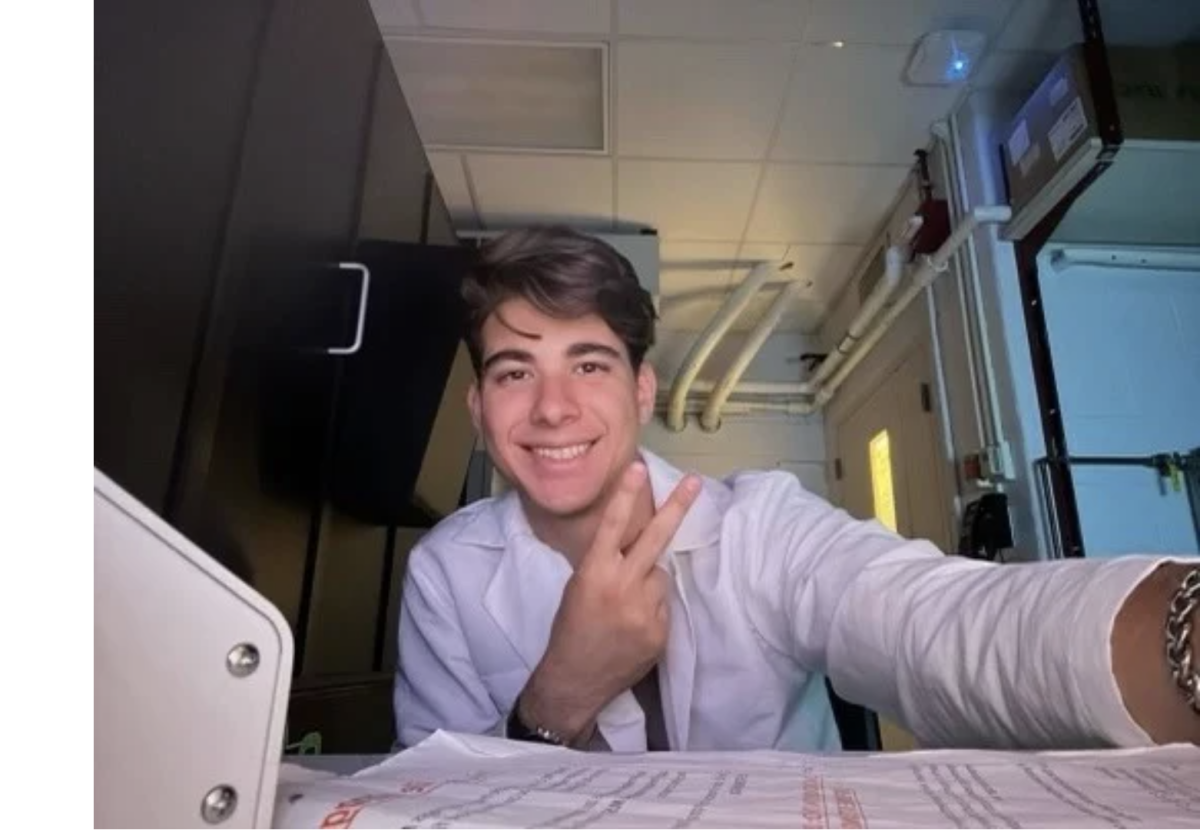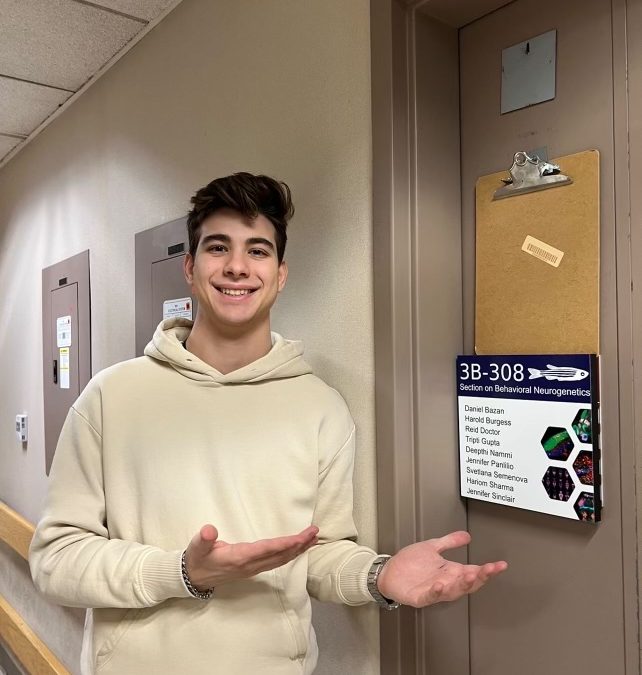In the world of neuroscience, where many have sought to understand the complex behaviors and disorders of the brain, La Sierra University’s Honors Program takes pride in alumni Daniel Bazan. I had the wonderful opportunity to speak with Bazan about his pathway in neuroscience. In this interview, Bazan spoke openly about his journey from his early struggles with generalized anxiety disorder to his current role as a research fellow at the National Institutes of Health; Bazan’s journey is one marked by curiosity, dedication and pursuit of knowledge.
Bazan entered the world of neuroscience at the age of 11 when he was diagnosed with generalized anxiety disorder. Rather than letting this diagnosis define him, Bazan sought to understand both the diagnosis and himself in relation to it through research. This early exploration inspired a passion for psychology and neuroscience, setting the stage for his future endeavors. Furthermore, his childhood in a household where empathy and community instilled in him a deep-seated desire to make a meaningful impact on the world around him guided him toward a career in scientific inquiry with practical applications.

At La Sierra University, Bazan credits his neuroscience professors and the Honors Program for fostering experience in research, confidence, and curiosity. By reaching out to his professors and being curious about what he learned in the classroom, Bazan was able to immerse himself in Dr. Christophe Le Dantec’s Electroencephalography Lab, where he localized answers he had regarding the underpinnings of behavior at a physiological level. Additionally, his diverse history of lab experience significantly contributed to his skill sets that further paved his path in research. His exposure to microbiology in the SEA-PHAGES program, molecular biology from a cancer lab at Loma Linda University and physiology from Dr. Lloyd Trueblood’s lab provided him with a well-rounded foundation.
Within the Honors Program, Bazan valued the rigorous academic environment with personalized attention, which fostered his confidence and curiosity. Moreover, the peers he found in the program shared and thereby further cultivated his passion for academia, mentorship and community. Finally, Bazan found that the program’s focus on critical thinking provided him with invaluable skills for navigating future challenges in graduate studies.
With the combined help of the Honors Program and the close relationships he developed with the professors at La Sierra, Bazan was offered the opportunity to pursue research at the NIH in the Institute of Child Health and Human Development. The institute’s emphasis on human development and specifically brain development resonated with his personal and professional interests. As someone who has grappled with generalized anxiety disorder and experienced bouts of depression, along with having family members living with schizophrenia, autism and other neurological disorders, Bazan’s professional journey reflects an exploration rooted in his lived experiences from childhood and the world around him. Ultimately, the prospect of contributing to advancements in this field holds immense significance for Bazan, as it offers the potential to significantly enhance the quality of life and possibly cure diseases for individuals living with such disorders.

Bazan’s work at the Burgess lab, focusing on the genetic mechanisms underlying the brain’s ability to select appropriate behavior amidst changing external environments, applies to neurodevelopmental disorders such as autism and schizophrenia. By pulling from all the tools he learned at university, including genetics, molecular biology and behavioral analysis, Bazan investigates how dysregulated gene expression impacts neural circuits and subsequently the sensory processing throughout the brain. His recent projects involve identifying patterns of structural covariation in brain regions linked to genetic disorders and identifying neural circuits that regulate waking arousal behaviors. Bazan’s method of identifying genetic mutations that influence brain states through brain scans has garnered him recognition at esteemed events and facilitated his acceptance into leading Ph.D. programs including Harvard, Berkeley, and Northwestern University. Additionally, he has been awarded with the National Science Foundation Graduate Research Fellowship Program (NSF-GRFP).
Beyond his research endeavors, Bazan’s time in Washington D.C. has sparked a desire to actively engage with the local community. This led him to volunteer at Homes Not Borders, a refugee housing program, and later become involved with the Florez Lab at Harvard, where his focus centered on cancer health disparities and gender and racial discrimination in medicine. Inspired by these experiences, Bazan initiated a non-profit organization aimed at organizing health fairs in Maryland, offering addiction services, promoting local resources like food pantries and facilitating connections between medical professionals and those in need. Additionally, he takes on the role of a discussion leader at New Hope SDA Church on Sabbath.

Initially limited to weekend volunteer work due to his demanding schedule, Bazan now manages his community commitments on weekdays or weekends outside of the lab. Despite the rigor of his days, which often span from 8 a.m. to 10-10:30 p.m., Bazan finds time to explore the city with friends, attend comedy shows, work out and savor the culinary delights Washington has to offer.
Bazan’s work ethic, curiosity and grit have taken him far into neuroscience. He also stresses that if anyone needs advice with the M.D./Ph.D. or Ph.D. application process or a listening ear, he is always available. His advice to aspiring STEM students is to “pursue your curiosity relentlessly, seek diverse experiences, and never stop asking questions.”
—Krista Dufala, Class of 2025: Neuroscience/Pre-PA

